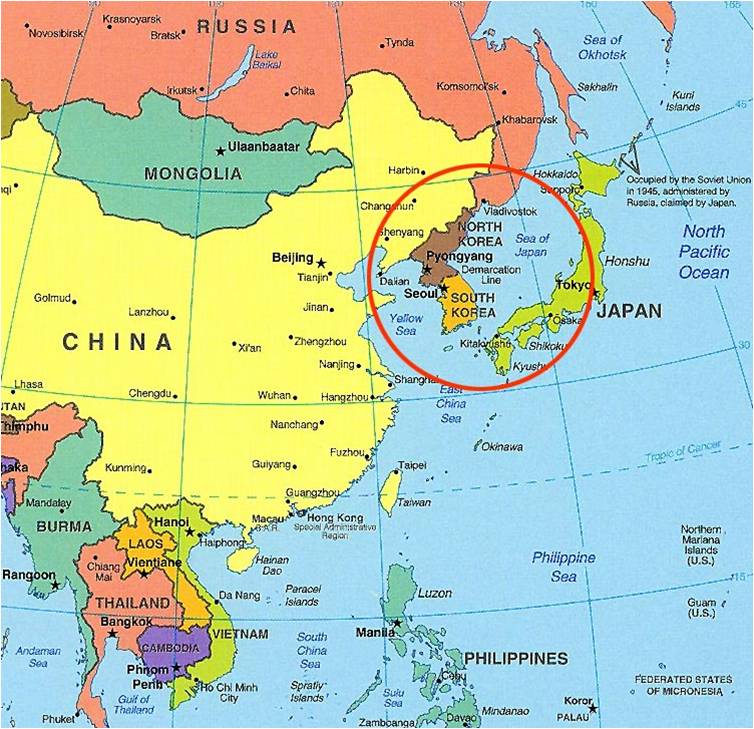Summary of the Presentation to the NSF on
Confronting North Korea
with
Ambassador Chris Hill
Former U.S. Ambassador to South Korea and Assistant Secretary of State for East Asian and Pacific Affairs Chris Hill gave a riveting presentation on the crisis with respect to North Korea and it’s rapidly advancing nuclear programs. Hill noted that this is the first time in over 50 years that any country has developed a nuclear weapons program whose missiles are aimed directly at the United States and its possessions. He observed that over time the U.S. has imposed penalties on Pyongyang and offered various incentives for a halt to its nuclear and missile developments, none of which has succeeded in stopping the advances.
There are numerous theories regarding why the North Koreans feel it so imperative to develop a nuclear weapons delivery capability. Obviously, the Kim Jung-Un regime feels that being a member of the nuclear club, with the capability of striking targets in the United States, assists in deterring potential adversaries from considering conducting military strikes against the North.
Hill noted that the North Korean nuclear program is not new—indeed, it has progressed for decades. The regime appears to be impervious to global criticism of its behavior. It also seems to believe that having a nuclear delivery capability brings it not only a deterrence capability, but “respect”—it cannot be treated as a “rogue regime”, but with respect….and fear! North Korea is an impoverished country that cannot feed its own people, but is willing to allocate extraordinary funds to it nuclear delivery programs, as well as its conventional military forces.
A longer-range goal is to eventually unify the Koreas under Pyongyang’s rule, an ambitious objective and one that requires convincing the U.S. that it would be better off leaving the peninsula and allowing the two Koreas to pursue their relationship independently. There is little support for this concept in South Korea, which recently has taken a much softer line toward the North than the U.S. And, there seems to be a growing sense of isolationism in the USA with the election of President Trump and a desire to get out of many “entangling alliances”.
The Republic of North Korea (RNK) has positioned a significant component of its military forces along the DMZ. They have developed a vast system of defenses and tunnels, making it difficult for the U.S. or South Korea to decisively defeat the North should it launch a preemptive attack with conventional forces. Utilizing the U.S. nuclear capability would inflict severe damage on the North, but the radiation impact on South Korea, China, Japan and Russia could be significant.
Hill, who also served as the head of the U.S. delegation to the Six Party talks on the North Korean nuclear issues, warned that there are no easy options to persuade North Korea to halt or slow its nuclear programs. He stressed that despite the difficulties encountered in negotiating with the RNK, the U.S. and its allies must persist in attempting various strategies to eventually persuade Pyongyang from pursuing the nuclear programs. This is necessary so that China, and especially South Korea, feel that Washington is sincere in its attempts to resolve the crisis peacefully and is not going to quickly unleash “Fire and Fury” on the North, as President Trump has threatened.
The Ambassador argued in favor of continuing talks aimed at lessening tensions, but also to increase sanctions on the North. He also strongly endorsed accelerating defenses against a North Korean attack, with the deployment of the THAAD anti-ballistic missile capability a high priority.
Hill thought the current U.S. administration is pursuing too many objectives at once (“If everything is a priority, nothing is a priority”). The key, he believes, lies in persuading China to step up and accept greater responsibility for reigning in the rogue regime in Pyongyang. Yes, Beijing has not been helpful to date, but the key to any resolution of this crisis lies in China putting pressure on its “ally” to ameliorate its aggressive military programs. China, the North’s major trading partner and benefactor, is the only country with the means to do this.
In the question period, Hill was wary of believing that a preemptive strike on the North by the U.S. could achieve the objective of severely damaging North Korea’s missile and conventional forces. He noted that many of the key facilities are buried underground and in hardened bunkers. Further, the bulk of its conventional forces are deployed right along the border with South Korea. And, conducting a surprise attack would be difficult in that the U.S. must first notify Seoul of it plans so that South Korea could get its population into shelters.
Hill was asked if other means might be effective in moderating the North’s behavior or, in case of war, limiting its capabilities. Yes, and that would include not just anti-missile programs, but a comprehensive and widespread cyber intrusion program.
The Ambassador discussed several sensitive issues, including the baffling and constant “reorganization” at the State Department, and the lack of skilled professionals in key (political appointees) offices. He recognized that Japan would now be more seriously considering deploying its own nuclear capability despite the constitutional prohibition against that, but felt that would not happen soon. With respect to Russia, he felt that the Putin regime should be consulted, but doubted that Moscow could exercise much influence in this region.
This was one of our best attended programs (over 320!) and it was clear that all participants would welcome Ambassador Chris Hill back soon to address the National Security Forum!
– Tyrus W. Cobb and Patty Evans


